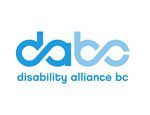2018 Bi-Monthly Update Series: November/December
To keep you informed, here are some highlights of changes and updates made to Clicklaw in November and December:
Jan-Feb | Mar-Apr | May-Jun | Jul-Aug | Sep-Oct | Nov-Dec
- CPP-D Self-Help Guides: CPP-D Benefits Application Guide – updated to reflect changes to the CPP-D process
- CPP-D Self-Help Guides: The Social Security Tribunal – new
- Checklist for the Persons with Disabilities (PWD) Benefit – updated
- Family Duty Counsel brochure – provides an overview of what family duty counsel can and can’t do. Includes how to find services near you.
- Parents Legal Centre – new locations added (Prince George, Smithers, Duncan, and Campbell River)
- For Your Protection: Peace Bonds and Family Law Protection Orders – added Farsi (Persian) edition and updated Chinese (simplified), Chinese (traditional), and Punjabi editions (French one will be done soon)
See their recently updated listings here (sorted by “last reviewed date”), which includes the following content:
- Money and debt, including mortgages, borrowing money, credit cards, credit reports, dealing with debt, and getting out of debt
- Employment, including your rights at work, getting paid, and if you’re fired or laid off (more to come)
- Health, including your medical records (more to come)
- Legal Forms Workshops – updated hours and added a new location at CHIMO Community Services in Richmond
- Legal Forms Workshops for Temporary Foreign Workers – updated hours and location (now at Collingwood Neighbourhood House in Vancouver)
 A Home for Finola and I: Barriers to Pet-Friendly Housing
A Home for Finola and I: Barriers to Pet-Friendly Housing
by Atira Women’s Resource Society
A review of the benefits of living with companion animals as well as the barriers to accessible pet-friendly housing in Vancouver. Published in January 2018, this paper was written by a law student as a research assignment for a course.
 Out of Pocket
Out of Pocket
by UVic Access to Justice Centre for Excellence (ACE)
An online tool that helps to put a dollar figure on the out-of-pocket costs to individuals and families during a family law dispute. It uses typical stories and experiences to provide snapshots of family law costs.





